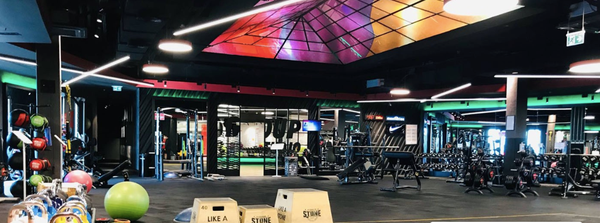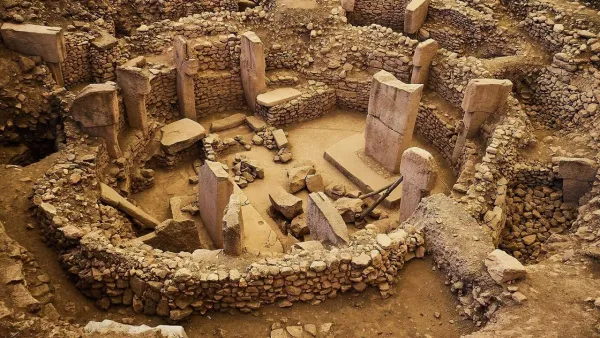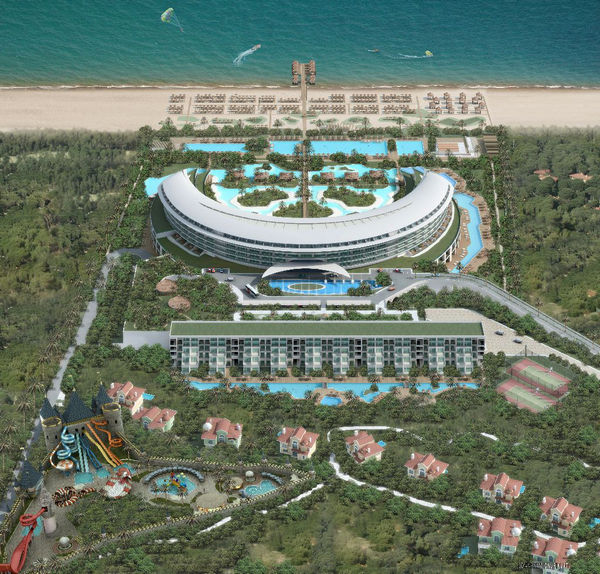Best Digital Nomad Destinations in Turkey (2025 Guide): Work, Live & Explore

Turkey. The bridge between continents, a crossroads of cultures, and increasingly, a prime destination for the modern remote worker. Forget the romanticized, Instagram-filtered version of nomad life. We're talking about strategic positioning, maximizing your earning potential, and building a sustainable lifestyle that fuels both your work and your wanderlust. If you're looking for a place that offers affordability, rich experiences, and robust infrastructure, Turkey delivers. But choosing the right spot is critical. This isn't about picking a city at random; it's about aligning your needs with the optimal environment.
Let's cut the crap. You want to know where to plant your laptop, where to find reliable Wi-Fi, and where your foreign currency stretches furthest. You want to work, live, and explore without the usual digital nomad headaches. This guide cuts through the noise to give you the hard intel you need to make a smart decision.
Why Turkey? The Undeniable Draw for Remote Workers
Before we dive into specific cities, let’s establish the core advantages that make Turkey a compelling choice for digital nomads. This isn't just about good weather and historical sites; it's about tangible benefits that impact your bottom line and quality of life.
Economic Leverage: Maximizing Your Foreign Income with the Turkish Lira
This is your primary advantage. The Turkish Lira (TRY) has experienced significant fluctuations against major foreign currencies like the USD, EUR, and GBP. For those earning in these stronger currencies, Turkey offers incredible purchasing power.
- Current Economic Climate & Benefits: Your $3,000 USD monthly income, the minimum requirement for the digital nomad visa, translates into a substantial amount of Turkish Lira. This means your essential living costs – rent, food, transportation, and entertainment – are significantly lower than in most Western or even many Asian digital nomad hubs. You can live comfortably, even luxuriously by some standards, on a budget that would barely cover rent in cities like London or New York.
- Cost of Living Comparison:
- Rent (1-bedroom apartment): Istanbul ($500-$830), Antalya ($400-$800), Izmir ($500-$800). Compare this to $1,500-$2,500+ in major Western cities.
- Groceries: A week's worth of fresh produce can cost as little as $30-$40 USD.
- Dining Out: A local restaurant meal with a drink might be $10-$15 USD, a fraction of Western prices.
- Transportation: Public transport is highly affordable, with city transit often costing less than $0.50 per ride.
This economic differential is not just a perk; it's a strategic advantage that allows for a higher quality of life, more disposable income for travel and experiences, and reduced financial stress.
A Cultural Tapestry: History, Diversity, and Hospitality
Turkey isn't just affordable; it's incredibly rich. This is a land where empires rose and fell, leaving behind a legacy etched into the landscape.
- Blend of East and West: Straddling two continents, Turkey offers a unique fusion of European and Asian influences. From the bustling bazaars of Istanbul to the ancient ruins of Ephesus, there’s a constant interplay of history, tradition, and modernity.
- Renowned Turkish Hospitality: The warmth and generosity of Turkish people are legendary. You'll find locals eager to help, share their culture, and make you feel welcome. This genuine hospitality can transform a temporary stay into a deeply enriching experience.
Infrastructure & Connectivity: Ready for Remote Work
Turkey has invested heavily in its infrastructure, particularly in major urban centers, making it a viable hub for remote work.
- Internet Reliability: While rural areas can be spotty, major cities like Istanbul, Izmir, and Antalya generally offer reliable internet speeds, often averaging 30-50 Mbps or higher on fixed broadband. Mobile data is also widely available and affordable.
- Coworking & Cafe Culture: The number of coworking spaces is rapidly growing, offering professional environments and networking opportunities. Beyond dedicated spaces, Turkey boasts a vibrant cafe culture, with many establishments catering to remote workers with ample seating, power outlets, and decent Wi-Fi.
The Digital Nomad Powerhouses: Deep Dives into the Must-Visit Cities
Now, let's get specific. Each city offers a distinct flavor of the Turkish nomad experience. Choose wisely, based on your priorities.
Istanbul: The Global Metropolis
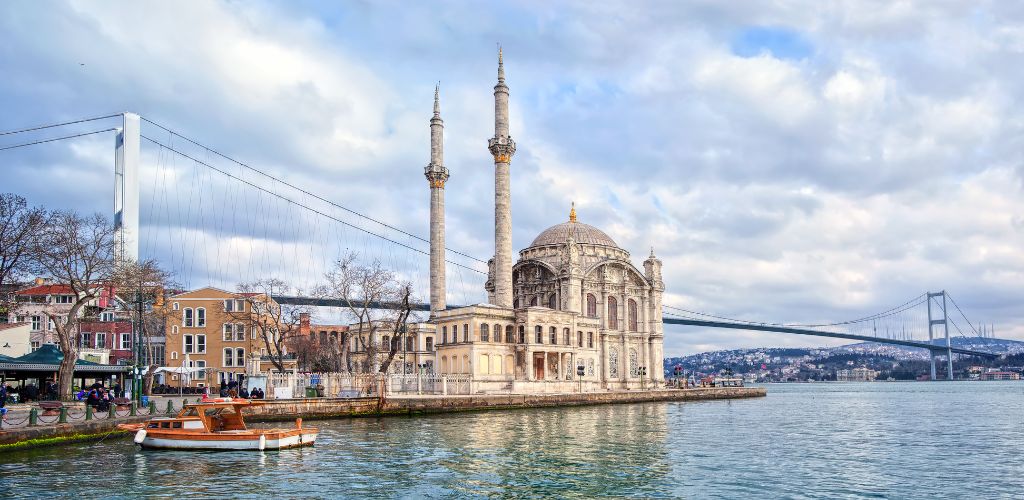
Istanbul is the undisputed heavyweight champion for digital nomads in Turkey. It's a city that pulses with energy, offering an unparalleled blend of history, culture, and modern amenities.
- Why it's King: This is where East literally meets West. Istanbul is a cultural epicenter, a global hub with endless opportunities for exploration, dining, and networking. Its sheer scale means you can live there for months and still discover new neighborhoods and experiences.
- Neighborhoods for Nomads:
- Beyoğlu (including Karaköy, Galata, Cihangir): Trendy, artsy, central, and buzzing with cafes and coworking spaces. Can be noisy and more expensive, but offers the most vibrant nomad scene. Cihangir is particularly known for its bohemian, expat-friendly atmosphere.
- Kadıköy & Üsküdar (Asian Side): Offers a more local, authentic vibe with great cafes, parks, and often more affordable options than the European side. Excellent for experiencing daily Turkish life.
- Beşiktaş: Lively and local, with good transport links and a strong sense of community. A great balance of urban energy and neighborhood feel.
- Cost of Living Snapshot:
- Rent (1-bedroom, central): $500 - $830 USD/month.
- Monthly expenses (excluding rent): $400 - $700 USD.
- Workspace Scene: Abundant coworking spaces like Workinton, Galata Business Center, and CoBAC, alongside countless cafes perfect for working.
- Pros & Cons:
- Pros: Unmatched cultural richness, vast amenities, strong expat/nomad community, excellent transport (ferries, trams, metro), endless things to do.
- Cons: Can be overwhelming and noisy, higher cost of living compared to other Turkish cities, intense traffic.
Antalya: The Mediterranean Dream

If sunshine, beaches, and a more relaxed pace are your primary drivers, Antalya is your contender. It offers a quintessential Mediterranean lifestyle combined with modern comforts.
- Why it's a Contender: Antalya boasts a glorious Mediterranean climate with over 300 days of sunshine, stunning beaches like Konyaaltı and Lara, and a rich historical backdrop with ancient harbors. It’s a city that embraces outdoor living.
- Neighborhoods for Nomads:
- Konyaaltı: Beach access, modern amenities, and a significant expat presence. Great for those who want to be near the sea.
- Lara: Similar to Konyaaltı, but can lean more towards resort-heavy areas. Still offers good beach access and is walkable to the city center.
- Kaleiçi (Old Town): Offers historic charm but can be touristy and more expensive. Better for short stays or visiting than as a primary base.
- Cost of Living Snapshot:
- Rent (1-bedroom, city center): $400 - $800 USD/month.
- Monthly expenses (excluding rent): $400 - $650 USD.
- Workspace Scene: Growing coworking options (Work C, Creawork, Mozaik) and a strong cafe culture, especially along the coast.
- Pros & Cons:
- Pros: Excellent weather, beautiful beaches, affordable living, growing nomad infrastructure, rich history and nature nearby.
- Cons: Can feel very touristy, potentially less authentic local vibe in key areas, may have stricter ikamet (residency permit) application processes recently.
Izmir: The Aegean Gem
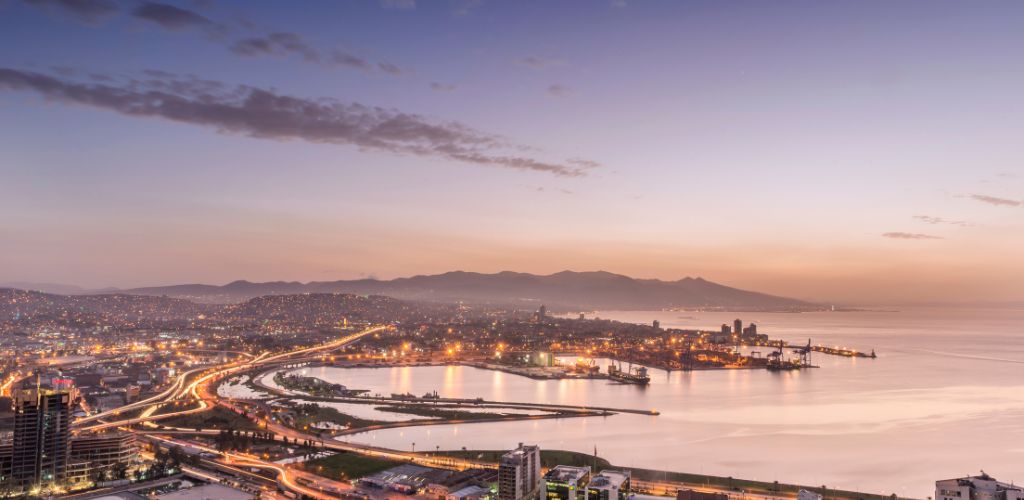
Izmir offers a perfect blend of laid-back Aegean charm with a progressive, youthful energy. It's a city that feels both historical and vibrantly modern.
- Why it's a Gem: Izmir is known for its progressive outlook, a lively café scene, and a very walkable, pleasant promenade along the Aegean coast. It attracts a significant expat and digital nomad community, making networking easier. It's also a gateway to incredible historical sites like Ephesus.
- Neighborhoods for Nomads:
- Alsancak: The heart of Izmir's social life, known for its lively atmosphere, cafes, restaurants, and seaside promenade.
- Konak: More central and traditional, with some coworking hubs. Offers a good balance of amenities and local life.
- Bornova: A university town with youthful energy and potentially lower costs for dining and nightlife.
- Cost of Living Snapshot:
- Rent (1-bedroom, city center): $500 - $800 USD/month.
- Monthly expenses (excluding rent): $400 - $650 USD.
- Workspace Scene: Emerging coworking spaces like Withco, Originn, and Lokasyon, plus a dense network of cafes.
- Pros & Cons:
- Pros: Pleasant Mediterranean climate, strong expat community, walkable city, great food scene, good infrastructure, proximity to historical sites.
- Cons: Recent reports suggest potential difficulties with ikamet applications, which is a critical point for longer stays.
Bodrum: Coastal Chic (For the Discerning Nomad)

Bodrum offers a more upscale, international experience, renowned for its stunning coastline and sophisticated atmosphere. It's ideal for those who appreciate a higher quality of life and don't mind a slightly higher price tag.
- Why it's Chic: Bodrum is synonymous with scenic beauty, a cosmopolitan feel, and a more exclusive ambiance. It attracts a discerning crowd and offers a vibrant social scene alongside its natural attractions.
- Neighborhoods for Nomads:
- Konacık: Offers more local living with potentially more affordable housing options, while still being accessible to Bodrum's center.
- Gümbet: A popular beach resort area, generally more budget-friendly than Bodrum center and offering a lively, albeit more tourist-focused, atmosphere.
- Cost of Living Snapshot:
- Rent (1-bedroom): Can be higher, $500 - $1000+ USD/month, especially in peak season.
- Monthly expenses (excluding rent): $450 - $750 USD.
- Workspace Scene: Limited dedicated coworking spaces, but a strong cafe culture caters to remote workers.
- Pros & Cons:
- Pros: Beautiful beaches and scenery, international feel, good for nightlife and socializing, pleasant climate.
- Cons: Higher cost of living, can be very touristy and busy during peak season, fewer dedicated nomad-friendly workspaces.
Fethiye: The Laid-Back Haven

Fethiye embodies a relaxed coastal vibe, famous for natural wonders like Ölüdeniz. It's a magnet for those seeking outdoor activities and a tranquil environment.
- Why it's a Haven: Fethiye offers breathtaking natural beauty, including the iconic Blue Lagoon. It has a strong digital nomad community drawn to its relaxed pace, outdoor activities, and generally good internet.
- Areas for Nomads:
- Fethiye Center: Provides good access to amenities, shops, and transport links.
- Hisarönü/Ovacık: Offers villas and quieter living, with frequent bus access to Fethiye and Ölüdeniz.
- Çalış Beach: Popular with remote workers, offering beachfront accommodation and a relaxed atmosphere.
- Cost of Living Snapshot:
- Rent (1-bedroom): $350 - $700 USD/month.
- Monthly expenses (excluding rent): $400 - $600 USD.
- Workspace Scene: Growing coworking options (Lokal, Hipokampus) and ample cafes, many with sea views.
- Pros & Cons:
- Pros: Stunning natural beauty, great for outdoor activities (paragliding, hiking), relaxed atmosphere, affordable, strong nomad community.
- Cons: Smaller city feel might not suit everyone, can be very seasonal with fewer options off-season.
Unearthing Hidden Gems: Turkey's Underrated Nomad Spots
While the big names get the spotlight, don't overlook these emerging or less-trafficked destinations that offer unique advantages.
Trabzon: The Black Sea's Natural Beauty & Authenticity
- Appeal: Lush landscapes, authentic Black Sea culture, significantly lower cost of living, and a less touristy feel. Offers a different side of Turkey, away from the Mediterranean bustle.
- Nomad Considerations: Connectivity and community infrastructure are developing but may not be as robust as in major hubs. Ideal for those seeking genuine cultural immersion and nature.
Mersin: Mediterranean Charm with a Local Feel
- Appeal: A less tourist-dominated Mediterranean coast, offering an authentic vibe and good value. It's a large port city with a significant local population, providing a more grounded experience.
- Nomad Considerations: Connectivity is generally good. The community is growing, but might require more effort to find nomad networks compared to Izmir or Istanbul.
Kalkan/Kaş: Tranquil Coastal Escapes (For Quieter Seekers)
- Appeal: Picturesque, peaceful, and less commercialized than larger resort towns. Known for stunning turquoise waters and a relaxed, bohemian atmosphere.
- Nomad Considerations: Connectivity can be more variable. Workspace options are limited, focusing more on cafes. Costs can increase significantly in peak season. Best for those prioritizing peace and quiet over bustling nomad hubs.
Bursa: History, Nature, and Proximity to Istanbul
- Appeal: Rich in history (Ottoman capital), surrounded by green spaces and the Uludağ mountain, known for thermal baths. Offers easier access to Istanbul without the capital's intensity.
- Nomad Considerations: Good infrastructure, emerging co-living and coworking potential. A solid option for a more balanced lifestyle, blending work with nature and history.
Honorable Mentions:
- Alanya: Popular Mediterranean resort town, known for beaches and historical sites.
- Adana: Offers an authentic Turkish experience with a vibrant cultural scene and delicious cuisine.
- Ağva: A quiet retreat on the Black Sea coast, perfect for nature lovers seeking tranquility.
The Nomad's Toolkit: Essential Practicalities for Turkey
Navigating Turkey as a digital nomad requires more than just picking a city. You need to be prepared for the practical realities.
Turkey's Digital Nomad Visa: Your Step-by-Step Guide
Turkey has streamlined the process with a dedicated visa, making it more accessible for remote workers.
- Eligibility Requirements:
- Passport: Valid for at least 6 months beyond your intended stay.
- Income: Minimum monthly income of $3,000 USD (or equivalent in other currencies), verified through employment contracts, self-employment proof, or invoices.
- Age: Between 21 and 55 years old.
- Education/Skills: A university degree or equivalent qualification is typically required.
- Criminal Record: A clean criminal record certificate (apostilled or officially translated and notarized).
- Health Insurance: International health insurance covering at least $30,000 USD.
- Biometric Photo: Recent passport-style photos.
- Application Process:
- Online Application: Submit your application through the official GoTürkiye visa portal.
- Document Submission: Upload all required documents.
- Consular Appointment: Schedule an appointment at the Turkish embassy or consulate in your home country or country of residence.
- Interview & Approval: Attend the interview, where your documents will be reviewed. Upon approval, you'll receive a visa.
- Crucial Insight: What Happens After the Visa? The digital nomad visa grants you an initial period of stay (typically 6 months to a year). For longer stays, you will likely need to apply for a residence permit (ikamet). The process for ikamet can be complex and varies by city. Research the specific requirements for your chosen city well in advance. Some cities have become stricter with tourist-based ikamet applications, making the digital nomad visa pathway more critical.
Navigating Costs: A Realistic Budget Breakdown
Turkey's affordability is a major draw, but understanding granular costs is key.
- Granular Costing (Monthly Estimates for a Single Nomad):
- Rent: $300 - $1000+ USD (depending on city, neighborhood, and apartment size).
- Utilities (Electricity, Water, Gas, Internet): $80 - $150 USD.
- Food (Groceries & Dining Out): $400 - $700 USD.
- Local Transportation: $30 - $60 USD.
- Mobile Data/SIM: $15 - $30 USD.
- Entertainment & Miscellaneous: $100 - $300 USD.
- Total (Excluding Rent): $625 - $1,240 USD. This clearly shows how your foreign income stretches.
- Leveraging the Lira: Always be aware of the current exchange rate. Use services that offer competitive rates for currency exchange or international money transfers. For everyday spending, withdrawing Lira from ATMs linked to your foreign bank account is often straightforward, but check your bank's foreign transaction fees.
Connectivity: Internet Speed & Mobile Solutions
Reliable internet is non-negotiable. Turkey's situation is generally good, but with a critical caveat.
- The eSIM Issue: What You MUST Know Before You Arrive.
- Critical Warning: Turkey has recently implemented restrictions on many international eSIM providers. If you rely on an eSIM purchased before arrival, it may not work.
- Solution: Purchase a physical SIM card upon arrival. Major providers like Turkcell, Vodafone, and Türk Telekom have kiosks at airports and physical stores in cities. You will need your passport for registration. This is the most reliable way to ensure connectivity.
- Best Mobile Providers: Turkcell generally offers the best coverage and speeds nationwide, followed by Vodafone and Türk Telekom.
- Average Internet Speeds:
- Fixed Broadband: 30-50 Mbps download in major cities, higher in premium areas.
- Mobile Data: Generally fast and reliable, especially with Turkcell.
- Reliable Coworking vs. Cafe Wi-Fi: For critical video calls or large file uploads, a dedicated coworking space is your safest bet. Cafes can be hit-or-miss; look for those with visible power outlets and a steady stream of people working.
Finding Your Base: Accommodation Strategies
Securing a place to live is a common challenge. Plan ahead.
- Airbnb vs. Long-Term Rentals vs. Co-living:
- Airbnb: Convenient for initial stays, offers flexibility, and allows for negotiation on monthly rates. Good for scouting neighborhoods.
- Long-Term Rentals: More cost-effective for extended stays but can be difficult to secure without a local rental history or residency permit. Landlords often prefer contracts in USD/EUR, though this is technically illegal.
- Co-living Spaces: Offer a community aspect and fully furnished rooms, often with utilities included. Growing in popularity in major cities.
- Negotiating Rent: Don't be afraid to negotiate, especially for longer stays or during the off-season. Be polite but firm.
- Neighborhood Analysis: Prioritize areas with good Wi-Fi, proximity to cafes/coworking, safety, and a community you can tap into.
Building Your Tribe: Finding Community & Networking
Isolation is the enemy of a fulfilling nomad life. Actively seek connection.
- Top Coworking Spaces: Utilize these not just for work, but for meeting like-minded individuals.
- Leveraging Digital Nomad Groups: Facebook groups (e.g., "Digital Nomads in Istanbul," "Antalya Expats") are invaluable for local advice, finding roommates, and discovering meetups. Meetup.com is also useful.
- Integrating with Local Culture: Attend language exchange events, explore local markets, and engage with local communities. This broadens your experience beyond the nomad bubble.
Overcoming the Hurdles: Common Mistakes & How to Avoid Them
Every destination has its friction points. Being aware is half the battle.
Navigating Bureaucracy: Residency Pitfalls & Patience Required
Turkey's bureaucracy can be challenging.
- The Ikamet Process: Research the latest requirements for residence permits in your chosen city. Appointments can be scarce, and processing times vary. Have all your documents perfectly organized.
- Landlord Preferences: Be aware that some landlords may prefer rent in USD/EUR. While it's against regulations, it's a common practice. Ensure you understand your rights and have a clear contract, ideally in TRY, if possible.
Cultural Nuances: Respecting Local Customs & Traditions
Respect goes a long way.
- Dress Code: While liberal in cities like Istanbul and Izmir, it's advisable to dress more modestly when visiting religious sites or more conservative areas. Shoulders and knees should generally be covered when entering mosques.
- Social Etiquette: Turks are generally warm and hospitable. Accepting offers of tea or coffee is polite. Learning a few basic Turkish phrases shows respect. Avoid public displays of affection beyond what's common in Western cultures, especially in more traditional areas.
Financial Management: Dealing with Currency Fluctuations & Scams
Stay sharp with your finances.
- Budgeting: Account for potential currency shifts. Use budgeting apps and track your spending diligently.
- Avoiding Scams: Be wary of overly aggressive vendors, unsolicited offers, and anything that seems too good to be true. Always confirm prices upfront, especially for taxis. The eSIM issue is a prime example of a new, emerging challenge to be aware of.
The eSIM Nightmare Revisited: What Happens If You Arrive Unprepared?
- The Consequence: Arriving in Turkey with only an eSIM from a blocked provider means you'll likely have no mobile data or local calling capability until you secure a physical SIM. This can severely hamper your ability to navigate, communicate, and work from day one.
- The Solution is Simple: Prioritize obtaining a physical SIM card immediately upon arrival at the airport from a reputable provider like Turkcell.
Conclusion: Which Turkish City is Your Nomad Paradise?
Turkey offers a diverse range of environments for digital nomads, each with its unique appeal and practical considerations.
- For the Urban Explorer: Istanbul is your powerhouse, offering unparalleled cultural depth, networking opportunities, and endless activities.
- For the Beach Lover: Antalya provides the Mediterranean sunshine and coastal lifestyle, though be mindful of tourist crowds.
- For the Balanced Nomad: Izmir offers a laid-back Aegean vibe with good infrastructure, provided you navigate the ikamet landscape carefully.
- For the Chic Seeker: Bodrum delivers a more upscale, scenic experience, ideal for those who appreciate a refined atmosphere.
- For the Nature Enthusiast: Fethiye provides a relaxed, outdoor-focused lifestyle with stunning natural beauty.
Final Decision-Making Factors:
- Budget: How much can you comfortably spend monthly? This will heavily influence your city choice.
- Lifestyle: Do you crave urban energy, beach relaxation, or quiet nature?
- Community: Are you looking for a large, established nomad scene or a more local, emerging community?
- Practicalities: How important are readily available coworking spaces, ease of ikamet applications, and robust public transport?
